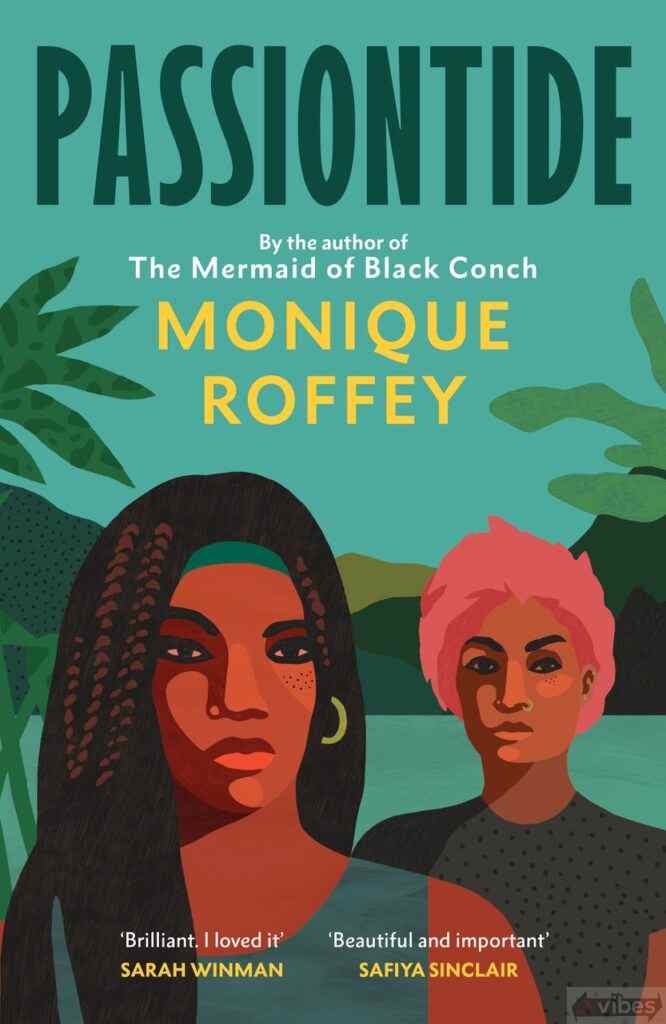By Melvina Hazard

Monique Roffey’s latest novel, Passiontide is a bold and audacious feminist revenge fantasy that eviscerates systemic misogyny, corruption and unchecked femicide in St Colibri – an eerily familiar, fictitious Caribbean island.
Inspired by a true story, the novel is a reimagination of the events that could have transpired in response to a particularly highly publicised homicide as opposed to the unsolved murders of 500 women over five to six years.
Passiontide is simultaneously delicious and devastating in its premise. What if “an unlikely collective” of competing women’s groups, journalists, activists, university students, sex workers, women pannists — women of all classes, ethnicities, education, generations and religious beliefs band together to form an occupation and protest movement that is actually successful as has happened elsewhere? What if the police and politicians were forced to confront their apathetic attitude towards a rising tide of femicide and violence towards women? What if ordinary women brought powerful, egotistical politicians to their knees? What if these said women created a global #AmINext movement. Who suffers the personal sacrifices and consequences? What if women went on a national sex strike?
The events in Passiontide occur during Lent. It begins with the shocking discovery of a well-known foreign woman’s body on Ash Wednesday and carries on through the weeks of the Lenten season. While the headlines and personas will feel familiar, the story that unfolds is a staggering daydream that begins with a sense of ongoing dread and hopelessness, slowly building to a carnivalesque groundswell of feminist resistance and revolution.

Passiontide features a complex cast of female characters – The leaders of the revolution: Sharleen Sellier, the principled, passionate St Colibri Guardian’s Woman’s Affairs Editor – worn down and weary to the point of quitting her job but reinvigorated by the casual misogyny and cynicism of the powerful men she confronts; her good friend and comrade in arms – Tara Kissoon, the formidable, queer, pink haired “Radical Punk Feminist”; the notorious Gigi Lala – founder of the Port Isabella Sex Workers Collective; her hilariously named wing women Satine la Douce and Fleur Wondrous; the spectral presence of Sona Tanaka floating through the narrative and Daisy Solomon for you to discover yourselves.
Then there are the men on different stages of the misogyny spectrum, unlikable, detestable personas, who Roffey somehow treats with nuance and compassion: Inspector Cuthburt Loveday, the incompetent lothario reluctantly charged with solving the murder; Randolph Aleong, the bumbling entitled Mayor of Isabella; Errol Solomon, the unrelenting ego-infused Prime Minister.
And poor Dr Jason Forrestor, the overworked, lovelorn foreign Forensic Pathologist – an unsettled colonial relic.
In Roman Catholic mythology, the tradition of Passiontide invokes a heightened awareness of Christ’s sacrifices during Lent by the covering of statues, crucifixes and other artwork to reflect on the darkness the world would be without faith. Held during the last two weeks of Easter, it encourages us to imagine a bleak world without Christ’s sacrifice.
In Passiontide, Roffey turns this trope on its head. Sona Tanaka’s ghost floating above in the cannonball tree invokes the image of crucified Christ – the sacrificial lamb. Statues representing feminine essences of the island’s various belief systems – Christian, Hindu, Orisa, Carib are hoisted, paraded, flaunted during the protest/occupations, which at times conjures impressions of the Stations of The Cross.
Shrines appear to be public art installations. The women use these apparitions of strength and “soul force” to turn hurt, horror and trauma into defiance, resistance and triumph. Forcing light and awareness onto a terrible phenomenon.
Passiontide is the type of novel you would want to read at least twice. The story will sit and haunt you for a while.
It is delicious in that Roffey juxtaposes her typically provocative, astute and unsettling observations with humour and compassion.
It is devastating in the unsettling reminder that even when women are handed the illusion of power, it is always at the expense of a new sacrificial lamb.
Monique Roffey, winner of the 2020 Costa Book of the Year Award and the 2013 OCM Bocas Prize will be at The Writers Centre on Friday June 28, to sign copies of her brand-new novel, Passiontide!

This event is free and open to the public. Passiontide will be available for sale at Paper Based Bookshop at The Writers Centre, 14 Alcazar St Port of Spain.
